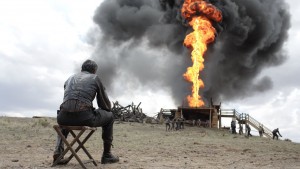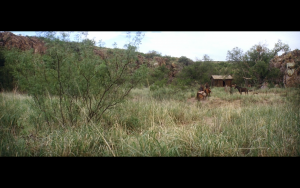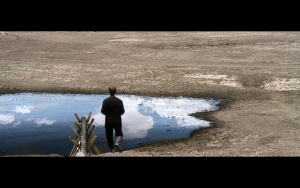The focus of media materialism this week gave way to frequent discussions of apocalyptic film in the final lectorial. The films discussed were films that contained an apocalypse that was literal, that is, obvious to the audience, such as Mad Max or The Hunger Games.
However, a film I believe can be argued as having apocalyptic themes is Paul Thomas Anderson’s 2007 Masterpiece, There Will Be Blood.
How the hell could this be considered apocalyptic? You may ask. The reasons against it are all there, its set in the early 20th century, and whilst history can often be forgotten I believe it to be pretty clear that no apocalypse has ever occurred.
Well, whilst the film may not be about an apocalypse per say, it arguably predicts one.
There is an obvious sense of foreboding in the film, thanks to in part Anderson’s masterful directional ability to create an intense sense of dread in his slow zooms. It is also thanks to Johnny Greenwood’s intense score, using frequent crescendos to demonstrate a sense of tension and foreboding to a bitter end.
The film is centered on the idea of capitalism, where protagonist Daniel Plainview’s vaulting ambition and unquenchable desire for materials and wealth is Anderson’s personified dismissal of capitalism as poison for the human soul. We often see a considerable difference in the earth of Little Boston before and after it has been drilled for oil.
Notice here a green and lush earth, full of nature and life. This is the land that belongs to William Bandy in the film, an obstacle for Plainview, as Bandy is a devoutly religious man who refuses to give in to the promise of capitalism.
In contrast, here is land that Plainview has drilled in. The earth is dead and grey, and the only sign of liquid is not water, but instead oil, the blood of the land spilled.
It’s clear throughout the film that oil represents the earths blood, and it could be argued that Plainview’s drilling is arguably killing the earth he lives in. Oil drilling has never stopped, and therefore, there must be a time where the earth is killed in its entirety, an idea reminiscent of an apocalypse of life.



